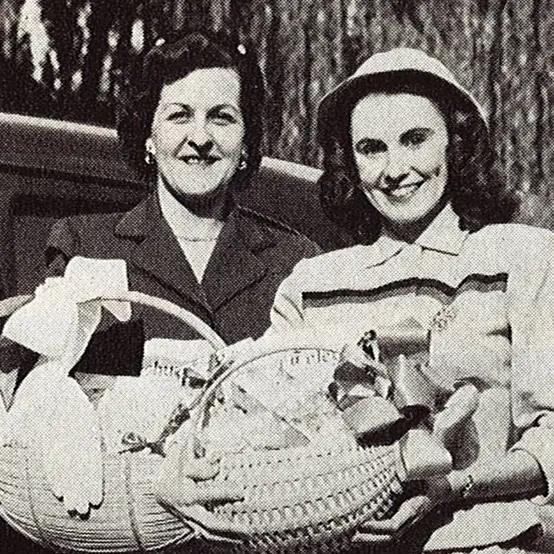About us

America's Welcoming Service Since 1928
For nearly a century, Welcome Wagon has been introducing businesses to the best source of new customers — new movers.

Our Beginnings
Welcome Wagon® was founded in 1928 by Thomas Briggs, a visionary marketer from Memphis, Tennessee. Inspired by the tales of early Conestoga “welcome wagons” greeting westward travelers with fresh provisions, he created a business rooted in the same spirit of hospitality.
Briggs introduced a unique approach—friendly “hostesses” personally delivered gift baskets from local businesses to new homeowners. These women, knowledgeable about their communities, would share insights over a cup of coffee while offering gifts and coupons to newcomers.
This concept grew nationwide, and Welcome Wagon® became one of the first all-female companies in the U.S., with Briggs and a few men as the exception. Today, we continue this proud tradition of helping businesses connect with their communities.


Changing With the Times
Since its founding, Welcome Wagon’s personalized greetings and community information have reached over 100 million households—including U.S. Presidents as they moved into the White House.
In 1998, as two-income households became the norm and fewer people were available for home visits, Welcome Wagon® evolved. We began greeting new homeowners through the mail with customized Gift Books, continuing our tradition of warm welcomes in a modern way.
An Exciting Present, A Limitless Future
While the days of door-to-door visits are behind us, Welcome Wagon® remains dedicated to connecting with new homeowners—now through their mailboxes and online.
Though our delivery methods have changed, our mission remains the same as it was in 1928: Welcoming families to their new homes by introducing them to local businesses and services that can help them settle into their communities.
